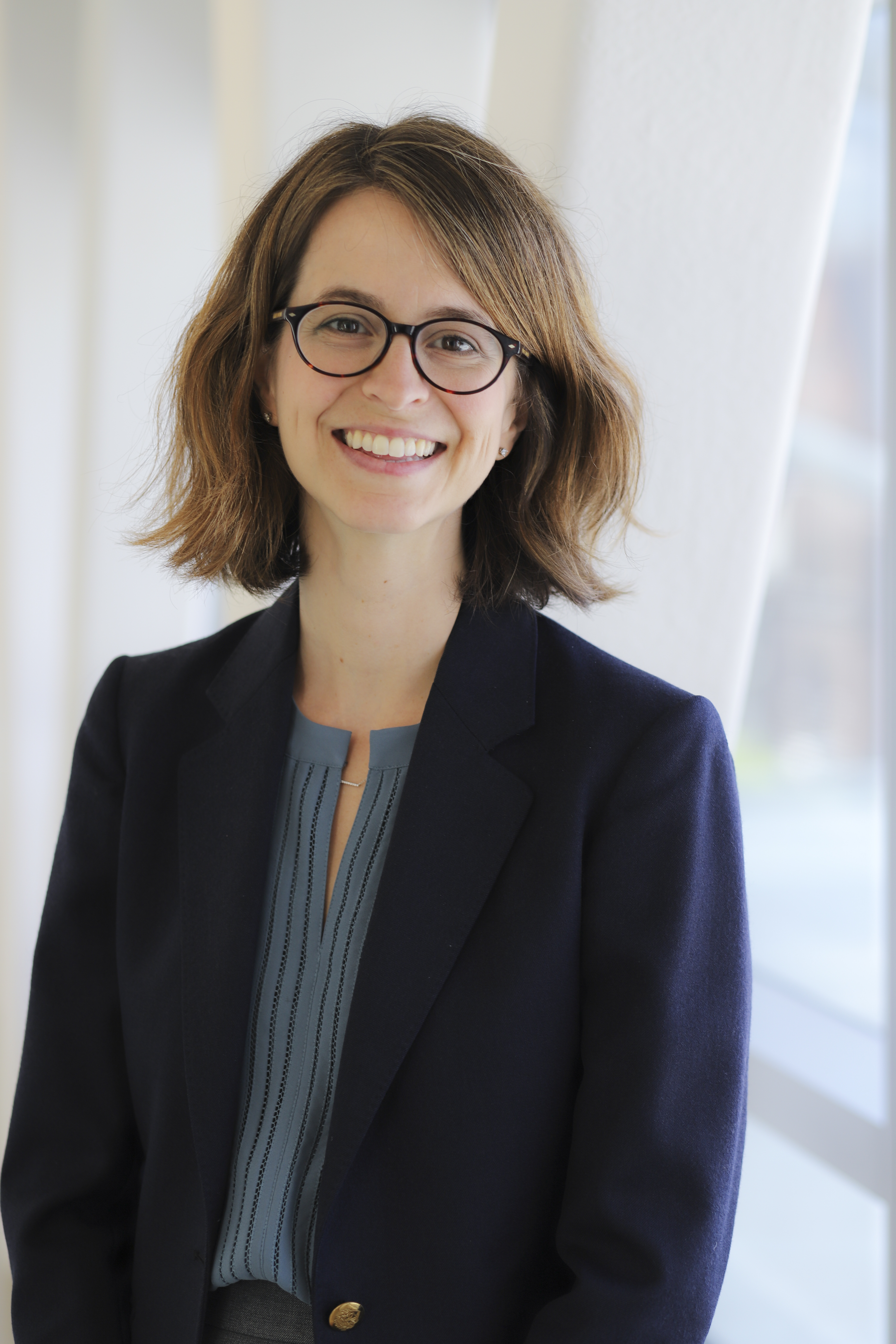Main Second Level Navigation
- Welcome
- Why Toronto?
- History of the Department
- Vision & Strategic Priorities
- Our Leadership
- Our Support Staff
- Location & Contact
- Departmental Committees
- Department of Medicine Prizes & Awards
- Department of Medicine Resident Awards
- Department of Medicine: Self-Study Report (2013 - 2018)
- Department of Medicine: Self-Study Report (2018 - 2023)
- Communication Resources
- News
- Events
Faces of U of T Medicine: Lauren Lapointe-Shaw

Claire Wiles
 Dr. Lauren Lapointe-Shaw is an assistant professor in the University of Toronto’s Department of Medicine, a general internist at University Health Network and a recent graduate of the DoM's Eliot Phillipson Clinician Scientist Training Program (CSTP). She recently completed a PhD at U of T’s Institute of Health Policy, Management and Evaluation where her research examined the impact of health policy on the outcomes of patients discharged from hospital.
Dr. Lauren Lapointe-Shaw is an assistant professor in the University of Toronto’s Department of Medicine, a general internist at University Health Network and a recent graduate of the DoM's Eliot Phillipson Clinician Scientist Training Program (CSTP). She recently completed a PhD at U of T’s Institute of Health Policy, Management and Evaluation where her research examined the impact of health policy on the outcomes of patients discharged from hospital.
Last year, Dr. Lapointe-Shaw made headlines after publishing a study that looked at what she refers to as the “holiday effect.” She found that patients who were sent home from the hospital around the two-week winter holiday period were at a higher risk of death shortly following discharge and were more likely to be re-admitted to the hospital within a month.
Writer Claire Wiles sat down with Dr. Lapointe-Shaw to talk about how her experience as a CSTP trainee benefitted her research, her plans for the future, and what advice she has for those pursuing a career in clinical research.
As a recent graduate of CSTP, how has this program helped shape your career as a clinical researcher?
It’s been really instrumental, mostly because of the financial support. When you are a licensed physician, you have the opportunity to work clinically and make a good income. CSTP’s financial support allowed me to dedicate that time to research rather than filling it with clinical work. In addition, the program was so supportive in building connections among the trainees, and between trainees and more senior researchers. They helped us find mentors and promoted us and our overall career development.
How important was the mentorship of your CSTP supervisor during this program?
So important. My CSTP supervisor was Dr. Chaim Bell [a Department of Medicine professor, clinician scientist and Physician-in-Chief at Sinai Health System]. He is a tremendous person who takes his role as a mentor very seriously. He regularly checks in, and not just about my research. He’ll ask, how are you, how are your finances, how is everything? He will dole out wisdom that touches on everything, from research to parenting advice. He’s been an incredible advocate, facilitated so many connections, offered great opportunities and supported my recruitment as faculty.
What was your experience like as a CSTP trainee? What was your biggest takeaway from the program?
I would say my experience has been really excellent. I’ve probably been one of the longest-time participants in the CSTP, since over six years I took two maternity leaves. It meant a lot to me that the program supported me through my two parental leaves so that I could have that time to spend with my babies but still come back and have research support. My biggest takeaway from it all has been the importance of dedicating the time to get specialized research training and build your research collaborations.
What have you been doing since you completed the program?
In August I was appointed as faculty with the Department of Medicine. I’m now based out of UHN in the division of General Internal Medicine as a clinician scientist. I’m still working on papers, as always, and starting to plot out and work on the next chapter and where I’m going to focus my work for the next five years. I think I’m going to continue to focus on the transition home from hospital, follow-up and re-admission. I’d like to look specifically at what types of groups are vulnerable to having decreased follow-up and other forms of transitional care.
What advice do you have for current students and trainees?
For anyone interested in embarking on a clinical research track, I think the key thing is spending the time getting properly trained. I would recommend doing a PhD rather than just a Masters. In a PhD program you end up taking more courses, learning more methods and having more time to dedicate to skill-building and to reflect on research questions. The other thing is mentorship - link up with someone who has navigated the same waters and can guide you along the way.
Is there anything else you’d like to add?
I agree with what others have said, that the Clinician Scientist Training Program is the jewel in the crown of the Department of Medicine. Its continued funding is crucial because its impact is far-reaching.
This is part of a series of profiles that feature trainees and graduates of the Department of Medicine’s Eliot Phillipson Clinician Scientist Training Program. Established in 1994, this competitive program enables MD specialists to pursue research as a major component of their career in academic medicine and become leading innovators in research.



